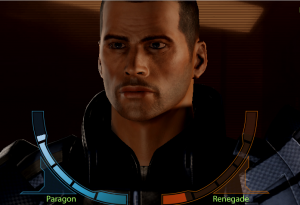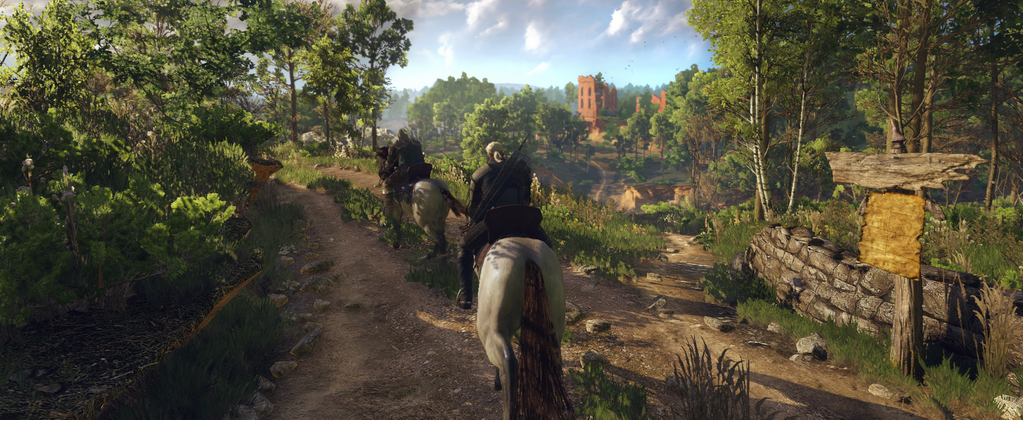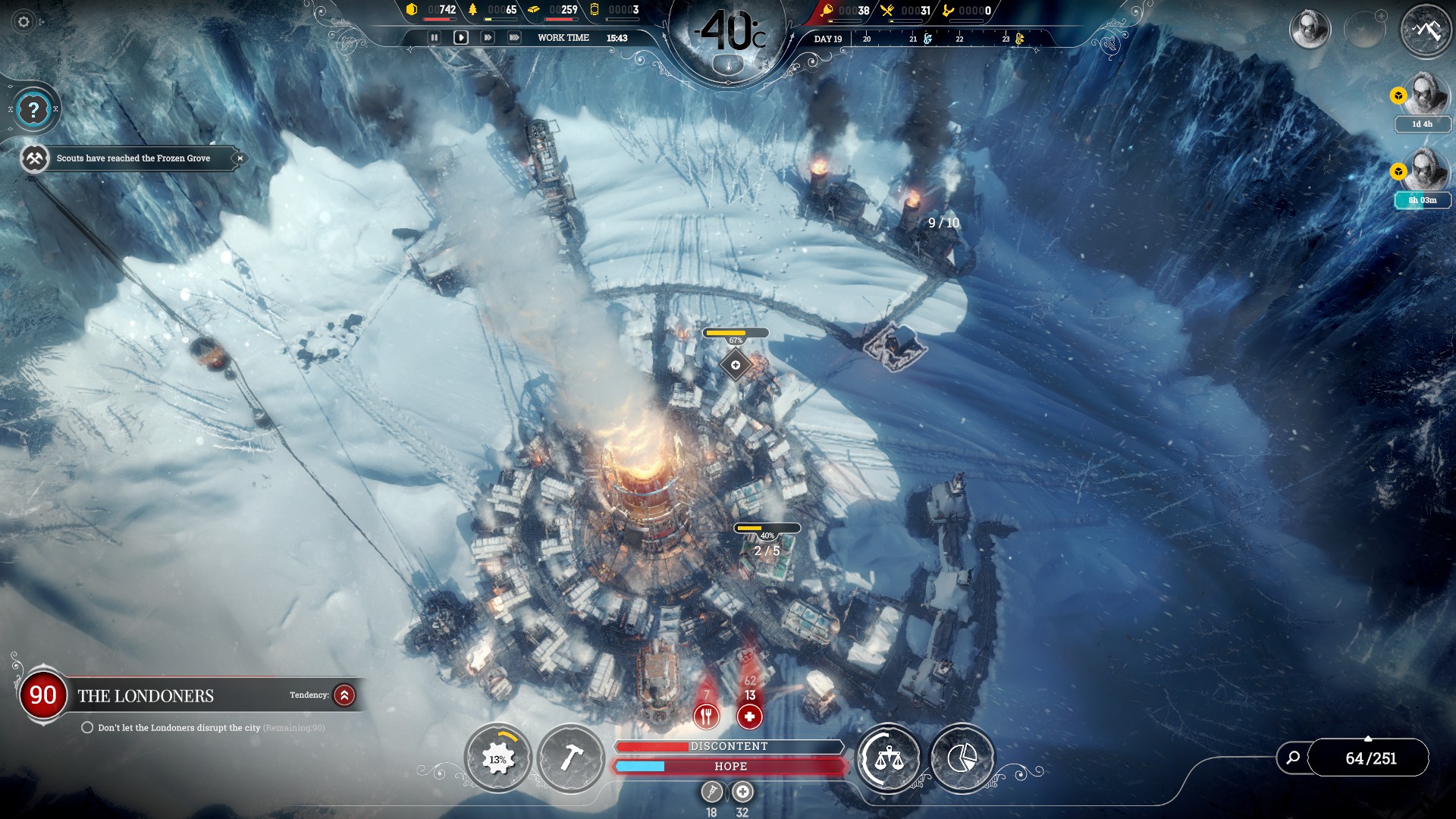I’ve been writing my RPG book over the last month or so and I’ve just reached the point where I wanted to talk about The Witcher‘s impact on CRPG design. It reminded me of how the game changed expectations and the design of the CRPG market, in particular, how it was a sharp counter to one of the worst design trends of the 2000s — morality systems.
Light, Dark, and Grey Side
The game that could be credited as the one that launched morality systems in the 2000s was Knights of the Old Republic by Bioware. As a CRPG, KOTOR will be remembered as one of the most celebrated games of the time, and the one that brought Bioware to stardom outside of the Dungeons and Dragons IP. The game featured a basic morality system that dictated whether the player would be a Jedi or a Sith through their choices at specific points. The further the player went to either side, the more corresponding powers they would unlock.
This system would soon be copied by many AAA studios, and further done by Bioware into the 2010’s with Mass Effect. Looking back on it from a conceptual and a design point of view, morality systems were just awful design.
An Angel or a Devil?
The problem with morality systems is that they represent one of the most “gamey” and arbitrary systems that someone could put into a game. For many games that went this way, morality broadly defined the player as a goody-two-shoes who would agree with everyone no matter what, or a jerk that liked to kick puppies and steal from orphans. For a lot of these games, your morality really didn’t impact the larger story or how people treated the player. No matter how “evil” you got, there was always a greater evil that you would have to defeat at the end.
From a gameplay point of view, these systems just did not make a lot of sense. The problem is that it would be considered poor optics to reward the player for “being bad”, so a lot of these games would do everything they could to push the player down the good path. The actual choices often felt fake — you could do one bad thing and a dozen good, but still be treated as an evil person, or any act could be easily countered by doing something else to counterbalance it. The idea that morality in itself can be “offset” by doing good or bad things never sat right with me.

the concept of morality sliders has always been a way of trying to make choices meaningful
And the last point about it, morality systems also presented a big problem when it came to series. How do you write a compelling story where you tell the player their choices matter, but then still have to continue the game with a canon plot for future games? No matter how you write the story, whoever picked what was considered “the wrong path” is going to be annoyed with you; or the choices spiral out of control and you can’t make anyone happy like with Mass Effect.
With everything said, one of my most memorable moments at that time was when I played the first Witcher and how it taught all the other studios a lesson on choice and morality.
Being Geralt of Rivia
The original Witcher game was for a lot of people their first introduction to the world of the Witcher and to Geralt. In a time where heroes in games were either completely silent or trying to be quippy all the time, Geralt stood out as someone on the dry side. At this point, all of you reading this probably know more about the overall world and plot after playing The Witcher 2 and 3 than I do, and maybe someday I’ll try them again.
But the first game was unique for the time with a focus on different combat systems, and a different approach to storytelling and choice. Like other RPGs at the time, the player could influence Geralt’s response in many of the quests and dialogue options. But unlike those games, Geralt couldn’t go evil… and he couldn’t go good as well. As a character, Geralt sits in the moral grey area between the worlds of human and the fantasy people, it would be reductive for both the world and for Geralt to be reduced to just good and evil. Instead, the choice was built around who the player wanted to side with — either the humans, the magical creatures, or stay as neutral as possible.
One of the early quests highlights this approach really well. The player comes across elves who are being beaten by humans for smuggling weapons to their people. If Geralt doesn’t intervene, those elves could be killed. As the player, it’s easy to think that the people being attacked are good and the attackers are evil. If you side with the elves and fight the guards, they will run away and thank you for helping them, case closed right? If you do that however, a later quest line will come to an end when you find the humans you had to meet were violently killed, and it is implied that it was by the weapons that you let those elves deliver.

The Witcher games have done a great job of letting the player control a named character (Geralt) but still being able to influence decisions
The game never stops the player to tell them if they were right or wrong, as there is no right or wrong in these cases — something has to happen and one side is going to suffer more from it. One of the best and most understated messages from the game comes at the very end. For the final sections of The Witcher, it will set Geralt down one of three main paths to the ending — again, either supporting humans, magical folk or neutral. The boss doesn’t change, and the conclusion to Geralt’s story doesn’t change based on who you decided to support. However, if you went the neutral route, you learn that while you personally didn’t bloody your hands in these matters, without having a decisive response to the situation, many more innocent people on both sides were killed because of your inaction. It’s a sharp lesson that being neutral is in fact making a decision on a matter.
Very few games that give the player choices will have the gall to suggest that there was no right choice. Another popular example of a game I played that did this was Tactics Ogre: Let Us Cling Together which the story basically got darker no matter what choices you made and you were never going to save everyone.
How Morality Evolved
While I can’t say for certain that The Witcher is the game that ended the morality systems trend, it did show me how flawed the system was and that there was a better and more realistic way to approach it. Focusing less on overall morality, and more on the people and personal impact makes the choices that much harder to do, and into the shades of grey. Geralt is not written as some fourth-dimensional chess master and master manipulator, he is very much someone

tough choices are when there is no right answer, and you have to deal with the consequence of it
who is looking for the best possible outcome in the short run and knows that things always change. As a final example, the game Frostpunk also dealt with this kind of decision-making. At the end of the day, it doesn’t matter if everyone hates you in your city as long as they are alive to work for you.
Just throwing a good/evil slider into your game doesn’t say anything about morality in the world or lead to deeper conversations. Likewise, if the world itself doesn’t respond to your choices or your actions, then the system isn’t there to make the game better, but just you thinking that checking off a design box will inherently improve your design.
Good decision-making is not about either going for your halo or twirling your mustache evilly, but about knowing that no matter what you choose something is going to happen, and you’re going to have to live with it regardless of the outcome.
- If you would like me to consult with you on your design or playtest your game, please reach out
- If you enjoyed this story, consider joining the Game-Wisdom Discord channel. It’s open to everyone
- For more on RPG design, check out Game Design Deep Dive “RPGs” out at some point when I’m done writing it
